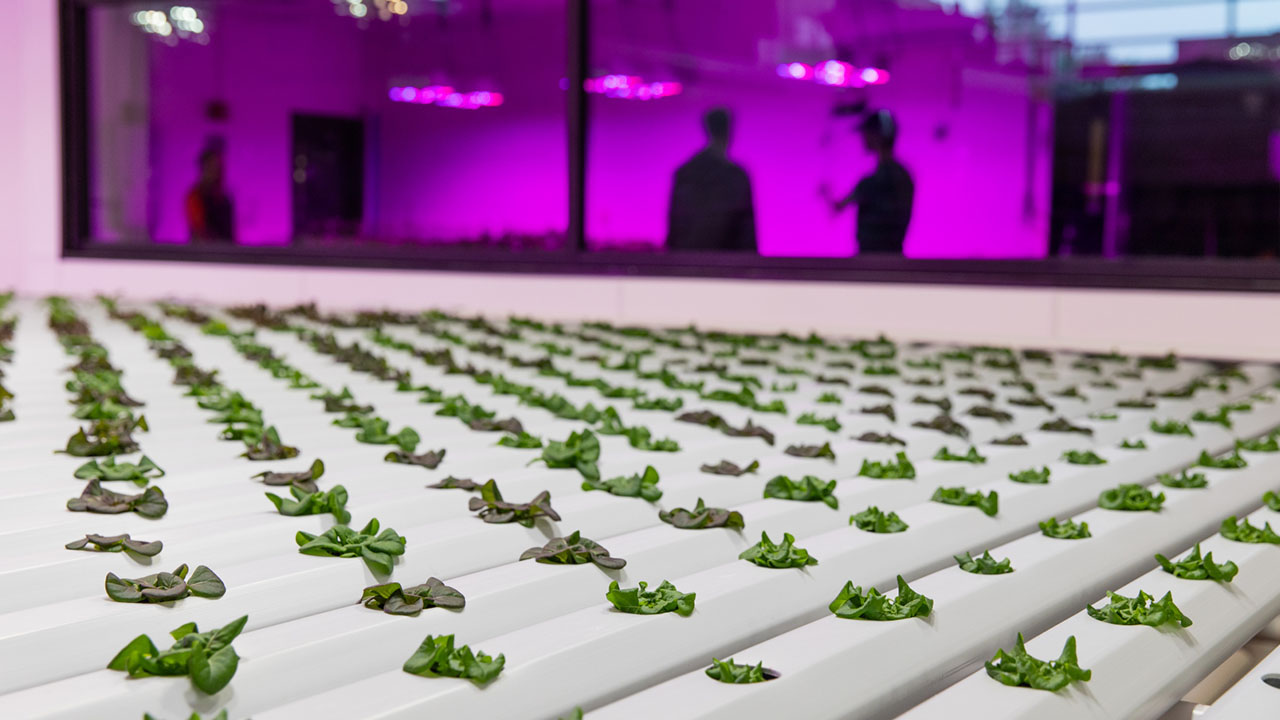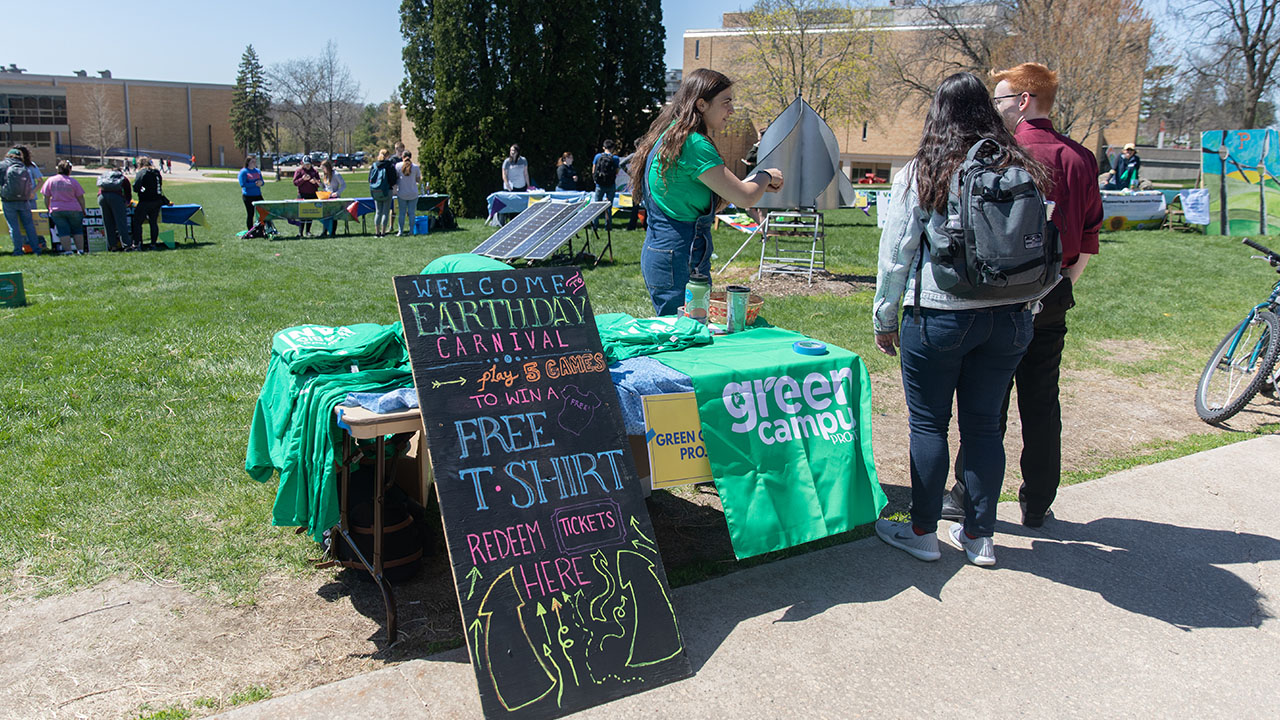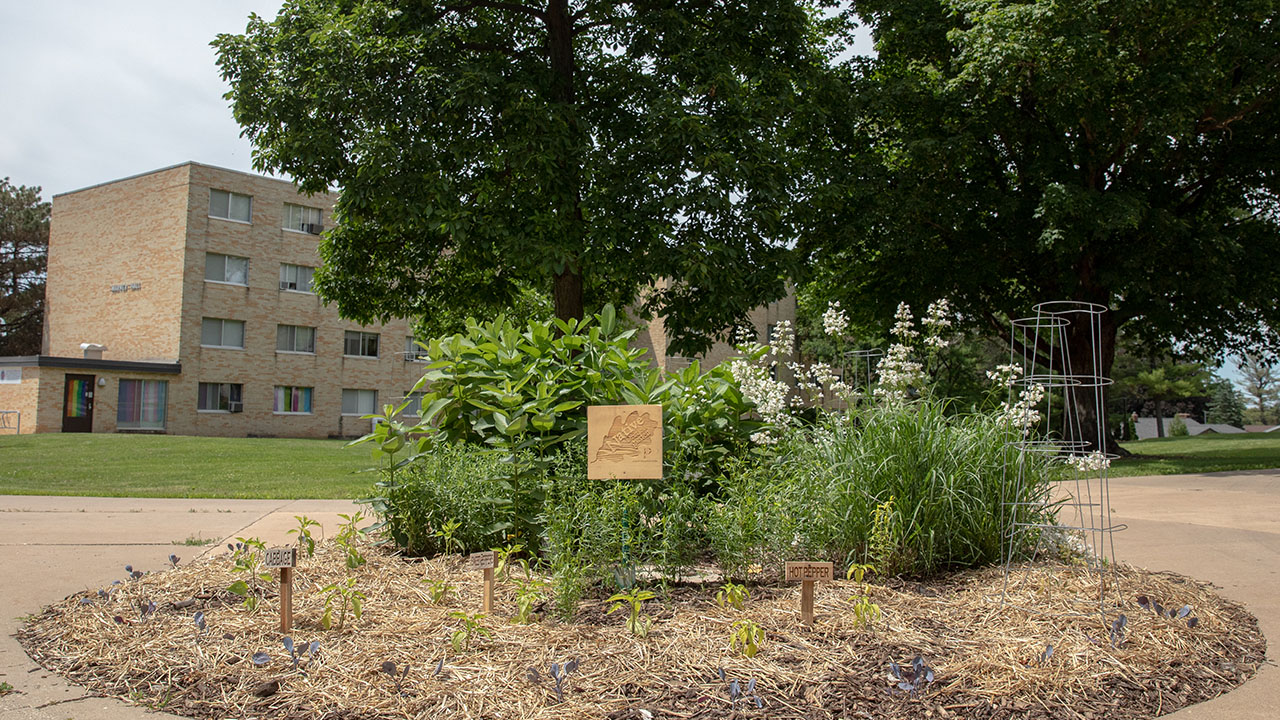



Reaffirming the institution’s long-term commitment to sustainability, the University of Wisconsin-Platteville recently earned a silver rating from the Association for the Advancement of Sustainability in Higher Education. STARS, the Sustainability Tracking, Assessment & Rating System, measures and encourages sustainability in all aspects of higher education.
"According to Princeton Review, 64% of students now consider environmental impacts when deciding what college to attend,” said Amy Seeboth-Wilson, sustainability coordinator at UW-Platteville. “Our STARS rating not only reaffirms that UW-Platteville is committed to a healthy environment, but also lets students know that by choosing UW-Platteville, they are helping to make the world a better place for future generations."
AASHE’s STARS program has more than 900 participants in 40 countries that report achievements in five overall areas, including academics, engagement, operations, planning and administration, and innovation and leadership.
This is the second consecutive silver ranking for UW-Platteville, and the institution’s overall score increased by 20% since the last ranking cycle in 2017. Seeboth-Wilson attributes this to several campus-wide initiatives, including the addition of a sustainability-themed interest community in a residence hall; an increased percentage of faculty engaged in sustainability-related research; and innovative programs, such as the Hydroponics Lab, enrollment of land in the National Wildlife Federation’s Certified Wildlife Habitat Program, and a wraparound childcare partnership between the Children’s Center and Platteville Public Schools. In addition, UW-Platteville pledged institutional commitment to the effort by adopting sustainability as a core component of the university’s strategic plan.
Already looking forward to the next assessment in 2021, Seeboth-Wilson said several initiatives are in development that she hopes will further increase the university’s ranking, such as encouraging more classes to include sustainability outcomes, working with administration to include more sustainability training in employee and student orientation and partnering with Dining Services to grow more food on campus or at Pioneer Farm.
“We have several projects in development that, if they move forward, could bring our campus from 1% to nearly 100% renewable electricity, making UW-Platteville a national higher education leader in on-site renewable energy,” said Seeboth-Wilson. “Also, Sesquicentennial Hall, while not finished until 2022 and therefore not in our next report, will be our first LEED certified building, making a major commitment from both campus and the State Department of Administration to building with sustainability in mind.”
For more information about AASHE, visit www.aashe.org.